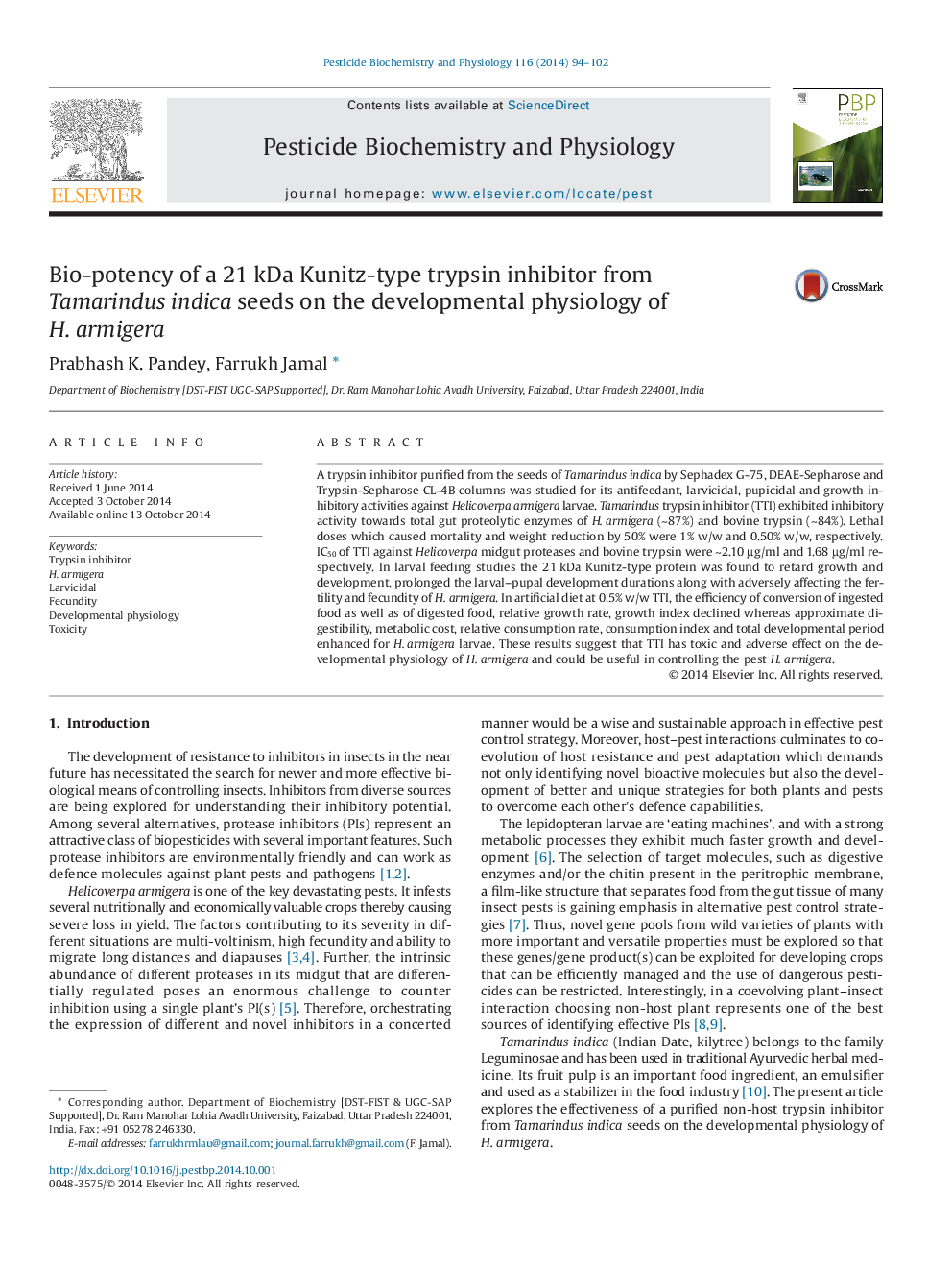| کد مقاله | کد نشریه | سال انتشار | مقاله انگلیسی | نسخه تمام متن |
|---|---|---|---|---|
| 2009167 | 1541783 | 2014 | 9 صفحه PDF | دانلود رایگان |

• Tamarindus indica trypsin inhibitor (TTI) negatively affected growth, development, fertility and fecundity of Helicoverpa armigera.
• Lethal doses for mortality and weight reduction by 50% were 1% w/w and 0.50% w/w.
• IC50 against trypsin like Helicoverpa midgut proteinases was ~2.10 µg/ml.
• Approximate digestibility, metabolic cost, and total developmental period enhanced for H. armigera larvae.
A trypsin inhibitor purified from the seeds of Tamarindus indica by Sephadex G-75, DEAE-Sepharose and Trypsin-Sepharose CL-4B columns was studied for its antifeedant, larvicidal, pupicidal and growth inhibitory activities against Helicoverpa armigera larvae. Tamarindus trypsin inhibitor (TTI) exhibited inhibitory activity towards total gut proteolytic enzymes of H. armigera (~87%) and bovine trypsin (~84%). Lethal doses which caused mortality and weight reduction by 50% were 1% w/w and 0.50% w/w, respectively. IC50 of TTI against Helicoverpa midgut proteases and bovine trypsin were ~2.10 µg/ml and 1.68 µg/ml respectively. In larval feeding studies the 21 kDa Kunitz-type protein was found to retard growth and development, prolonged the larval–pupal development durations along with adversely affecting the fertility and fecundity of H. armigera. In artificial diet at 0.5% w/w TTI, the efficiency of conversion of ingested food as well as of digested food, relative growth rate, growth index declined whereas approximate digestibility, metabolic cost, relative consumption rate, consumption index and total developmental period enhanced for H. armigera larvae. These results suggest that TTI has toxic and adverse effect on the developmental physiology of H. armigera and could be useful in controlling the pest H. armigera.
Graphical AbstractFigure optionsDownload as PowerPoint slide
Journal: Pesticide Biochemistry and Physiology - Volume 116, November 2014, Pages 94–102